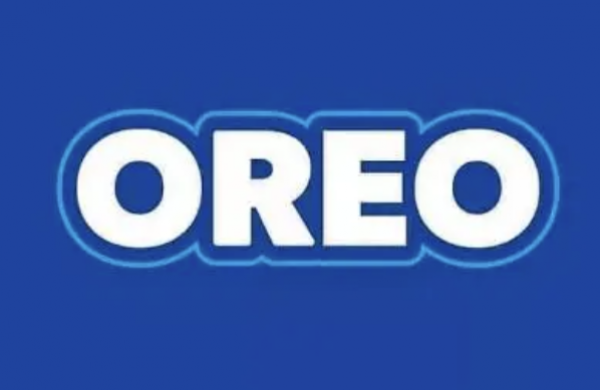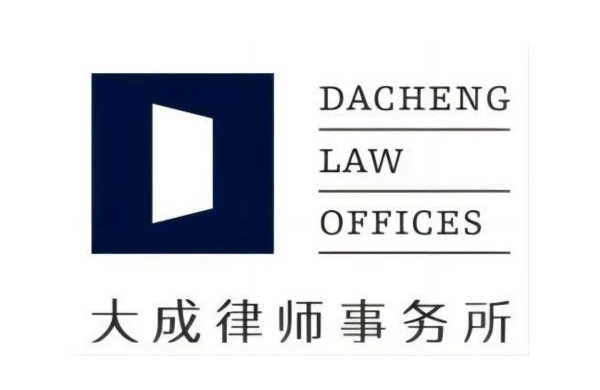Did not receive verification mail? Please confirm whether the mailbox is correct or not Re send mail

IPR Daily
- 2022-01-10 11:25:31
Opportunities And Legal Implications in The Metaverse
SUMMARY
The metaverse as a concept — and as a swiftly approaching reality — catapulted into the mainstream in 2021. Put simply, the concept of the metaverse is an interconnected, decentralized series of virtual reality and augmented reality worlds largely enabled through the development of Web3 technologies.
While the metaverse will offer multifaceted new opportunities for businesses and individuals, its rapid evolution and novel organization will also raise many questions for businesses, regulators and the legal industry.
In this article, we explore the underlying technologies of Web3, discuss the concept of the metaverse and its commercial opportunities, and examine associated legal considerations.
Decentralized Technologies
The modern internet has come to be largely defined by centralized applications such as social media platforms, software and websites that are siloed from one another and stored on large, consolidated cloud service providers.
Several iterative technological developments, described below, have emerged to enable a more decentralized, pseudonymous and autonomous internet known as Web3, where the metaverse can flourish.
Blockchain and Smart Contracts
Blockchains are essentially systems of records that store multiple exact copies of the same data across several computers in a network.
The cryptographic and immutable nature of blockchains makes them a versatile, foundational tool for Web3 applications.
The further development of interoperable blockchains, particularly nonfungible token, or NFT, blockchains, will have significant implications for the movement of digital items across Web3 and the metaverse.
Each blockchain can be configured to have unique properties. Blockchains with sophisticated transactional capabilities can enable modern smart contracts that are capable of facilitating complex decentralized financial transactions without the need for third-party intermediaries.
NFTs
An NFT represents ownership of a distinct, one-of-a-kind asset, which can either be digital, such as art, music, sports memorabilia and personal profiles, or physical, including titles or licenses to a house or car.[1]
NFT blockchains validate and record ownership of assets through cryptographically verifiable scarcity.
Interoperable NFT blockchains, coupled with the programmability of smart contracts, enable digital goods — and NFT-verified ownership of physical goods — to traverse decentralized marketplaces in Web3, and enable unique items originating in one AR/VR world to interact with other AR/VR worlds in the metaverse.
Decentralized Autonomous Organizations
Decentralized autonomous organizations, or DAOs, are virtual entities where the governance structure is specified in code. While each DAO is unique, in general token holders can vote to modify rules, alter membership and decide on investments, e.g., creating a smart contract to invest in a portfolio of NFTs.
Recently, a DAO named ConstitutionDAO raised over $46 million from more than 17,000 people in just a few days in an ultimately unsuccessful attempt to bid on a copy of the U.S. Constitution that was being auctioned off by Sotheby's.[2]
In Web3, DAOs will serve as governance structures to accomplish the collective objectives of a group.
In the metaverse, this concept will likely be taken a step further, with DAOs enabling individuals to participate in self-governance — collectively determining the agreed-upon rules and rights of individuals occupying distinct AR/VR worlds.
Legal Considerations
Below, we provide an overview of certain legal issues applicable to Web3 and the metaverse.
Contract Law
While some virtual worlds in the metaverse could be proprietary spaces, other worlds could be shared by the public.
World of Warcraft, for example, is a proprietary virtual space governed by Blizzard Entertainment Inc. through the game's terms of use.
However, the contractual terms that could be applicable to metaverse participants in other proprietary or public AR/VR worlds remains an open question.
Companies and individuals operating in the metaverse could employ blockchain protocols (such as simple smart contracts) or sophisticated protocols (such as creating DAOs) in a number of different ways to govern user transactions and rights.
In any scenario, the contractual terms applicable in a given digital space would have a significant effect on the rights of users and on the ability to transition to and from different AR/VR spaces within the metaverse.
Property Law
Owning virtual property may be a significant means by which organizations and individuals choose to interact with the metaverse.
Virtual 3D worlds, like Decentraland,[3] allow users to buy, rent or even invest in real estate that exists only within the virtual world.
Once the user owns the property, it can be utilized just as in real life: to host events and charge admission fees, to rent the space out to others, to display art or to create a retail space to sell digital items.
Certain virtual spaces that are designated as purchasable may enable organizations and individuals to acquire plots and impose their own rules of interaction subject to the broader regulations of the overall shared space.
Buying and selling virtual property is not a new concept. Video games like Second Life have had active virtual real estate markets for years and have allowed players to buy, sell and rent virtual property for real money.
However, Linden Lab, the creator of Second Life, controls the game and requires all players agree to its terms of service, which relinquishes any copyright or intellectual property rights from player-created content to Linden Lab.[4]
It remains uncertain whether property in the metaverse will be governed unilaterally through contractual means, such as terms of service, or whether property rights more akin to those in the physical world would evolve.
However, in areas of the metaverse regulated according to the shared governance structure of a DAO, virtual residents could have voting rights and conceivably play a role in establishing and/or altering virtual property rules.
Securities Law
As has already been the case with cryptocurrencies through numerous enforcement actions in the modern internet, organizations and individuals should be weary of securities regulations with respect to creating or otherwise participating in fractionalized NFTs and DAOs.
On Nov. 10, 2021, the U.S. Securities and Exchange Commission blocked a DAO, American CryptoFed DAO LLC, from registering two digital tokens as securities.[5]
The SEC alleged that American CryptoFed's forms contained materially misleading statements and omissions and did not provide adequate information about both the tokens themselves and American CryptoFed's business operations.[6] The SEC also pointed out that the tokens lacked attributes inherent to securities.[7]
This recent example highlights the legal challenges inherent in applying existing securities laws to decentralized blockchain-based systems.
Intellectual Property Law
Participants in the metaverse will also need to be mindful of how to monetize and protect their IP.
Though centralized entities will contribute to the metaverse in varying degrees, due to the inherently decentralized nature of Web3 technologies, in many instances no single source will build the software or code that enables the functionality of various AR/VR worlds.
Consequently, builders and developers would likely need to adopt agreed-upon standards to make their systems interoperable. This raises questions about which entities would develop and own the parts of the code required to allow interoperability.
Like in traditional IP spaces, standard-setting organizations could agree on fair, reasonable and nondiscriminatory terms to create value through IP licenses applicable to interoperability-enabling code.[8]
Alternatively, or perhaps in tandem, popular open source protocols may evolve organically based on the collective wants and needs of the AR/VR community.
Copyright Law
The metaverse as a composable digital world means that users and creators will often be able to source openly from anything and build on top of it.
Webpages today are almost always privately owned and not composable. But in the metaverse, a user could create art, media, music and other NFT assets with specifically coded IP rights, and then — to the extent permitted by the initial protocol — allow those IP rights to be modified by other users.
A significant challenge will arise when an unrecognized exploit of preliminary NFT asset code allows it to be manipulated by a user in an unintended manner that exceeds the creator's intended granting of IP rights.
How to enforce the rights explicitly enshrined in code, where to litigate IP issues and how to enforce judgments are all questions that will need to be answered, but may be determined to a significant extent by rules created by the particular AR/VR world the issue occurs in.
Copyright licensing may be pervasively leveraged in smart contracts to enshrine transactions.
For example, smart contract license terms could be built into an NFT when it is minted. Thereafter, upon the occurrence of certain events that are verified on a blockchain — e.g., resale of the NFT — the original creator could be paid a royalty.
These types of transactions can add value that is nonexistent in the sale of real-world articles protected by copyright given the first sale doctrine.
Trademark Law
As commercial entities enter the metaverse and build spaces there, it is likely that trademarks will be used and displayed widely. As such, it will be imperative that any company operating in the metaverse protect its trademarks.
Companies could prepare to operate in the metaverse by filing trademarks indicating intent to use the mark to make and sell virtual goods or to provide virtual services.
Nike Inc. recently took this approach, filing seven different applications to use its marks to sell virtual goods in the metaverse.[9]
Though the trademark filings cover some of Nike's traditional, well-known branding, such as the "Just Do It" slogan and swoosh logo, the filings indicate Nike's intent to use the marks in the virtual world.[10] This should afford Nike another layer of brand protection in the metaverse.
Trademark enforcement and policing will also be critically important in the metaverse. Companies should be vigilant where individual users or other commercial entities attempt to display the company's mark or resell goods bearing the mark.
Copyright and trademark issues in the digital world recently surfaced when Yuga Labs LLC created the Bored Ape Yacht Club, or BAYC, a collection of NFTs running on the Ethereum blockchain.
Yuga Labs minted 10,000 cartoon ape NFTs with bored expressions. Each ape NFT represents not only art, but also acts as an admission ticket for the owner to access the virtual BAYC community.
The purchasers of the bored apes received the underlying copyright to the ape artwork upon purchase, as well as the right to create derivative works.[11] Yuga Labs also granted each owner of a bored ape the right to commercialize their particular ape artwork — though the BAYC terms and conditions are silent on trademark rights.
Purchasers of the apes have commercialized their particular apes through creating comic books, selling branded India pale ale beer,[12] and even starting record labels and creating virtual metaverse music groups using their ape artwork.[13]
As the owners of the underlying BAYC brand, however, Yuga Labs has made it clear that the purchase of a particular bored ape NFT and its subsequent commercialization does not give the NFT owner a right to use its registered, trademark-protected BAYC brand — i.e., the right to use the overarching BAYC mark commercially alongside a particular ape.[14]
But with each ape being undeniably linked to the BAYC brand, this raises questions about whether and how Yuga Labs will ensure quality control — especially given the unfettered commercial rights it has granted to the ape NFT owners.
If Yuga Labs seeks to enforce quality control of the BAYC brand, it may need to build additional quality provisions and oversight into its NFT terms in the future.
Data Privacy Law
There will be endless opportunities to collect user data from citizens in the metaverse, especially because each citizen's experience could be highly personalized and transferable to different environments. Such data will be consistently generated and will be extraordinarily valuable to companies operating in the metaverse.
While privacy and data security laws will certainly apply, the virtual and largely permissionless nature of the metaverse could make it difficult to ascertain who or what controls data.
As a result, exactly how privacy laws will be applied in the metaverse, as well as how responsibility for data privacy, protection and compliance will be assigned, will present a challenging task.
Conclusion
As Web3 technologies evolve, and the metaverse emerges as a viable and significant virtual plane to conduct commerce, it is clear that opportunities and regulatory challenges will remain extensive for the foreseeable future.
For companies seeking to create and grow in this decentralized future, proactively considering the risks and finding means to mitigate them is paramount.
Source: law360.com
Editor: IPRdaily-Rene
- I also said the two sentence
- Also you can enter 140words
 PurpleVine Successfully Assists Client in Invalidating Sisvel US Patent
PurpleVine Successfully Assists Client in Invalidating Sisvel US Patent Chang Tsi & Partners Successfully Represents Wuxi's First Intellectual Property Civil Case Attached to Criminal Case
Chang Tsi & Partners Successfully Represents Wuxi's First Intellectual Property Civil Case Attached to Criminal Case China Monthly Antitrust Update: February 2024
China Monthly Antitrust Update: February 2024 IPOS was publishing a legal decision involving the trademark of tech giant, Google
IPOS was publishing a legal decision involving the trademark of tech giant, Google


